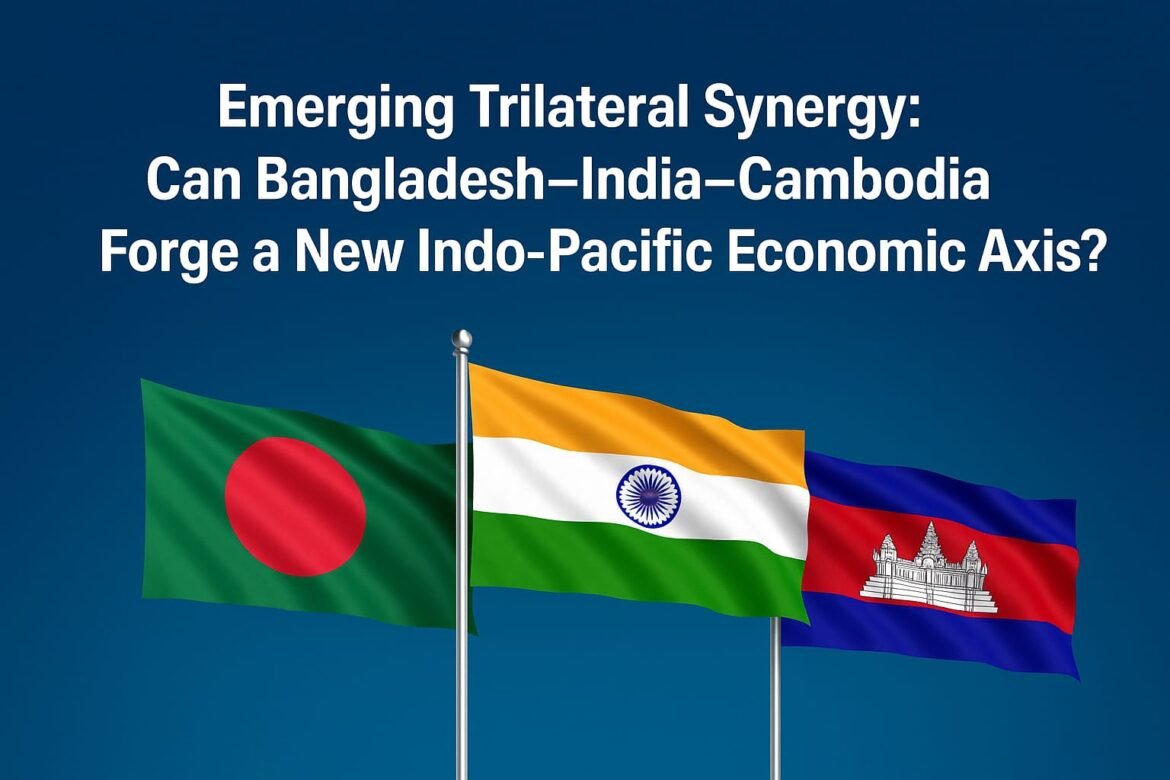In recent years, regional observers have often spoken optimistically about a new synergy in the Indo-Pacific — one that could unite Bangladesh, India, and Cambodia through shared economic and strategic interests. However, in the aftermath of the regime change in Bangladesh and the appointment of Nobel laureate Dr. Muhammad Yunus as the interim regime chief, this trilateral vision is encountering new headwinds, particularly in Dhaka–Delhi relations.
India has long regarded Bangladesh as a critical partner under the framework of its Act East Policy. Through connectivity projects, energy pipelines, and cross-border trade routes, the relationship had reached a historic high. Yet, with the sudden collapse of the elected government and the emergence of a transitional administration dominated by unelected technocrats, including Dr. Yunus, New Delhi’s trust has clearly been shaken. Quiet diplomatic signals from Indian missions and the reduced frequency of bilateral consultations in 2025 paint a picture of strategic caution.
Bangladesh’s previous efforts to serve as a connective hub between South and Southeast Asia had earned Delhi’s backing. But under the current interim regime, key infrastructure, defense, and energy dialogues have stalled. A vacuum in clear foreign policy direction from Dhaka has led to hesitancy in both Indian and Cambodian diplomatic quarters. What was once a promising arc of cooperation is now seen as an unstable corridor lacking democratic legitimacy.
Cambodia, for its part, remains open to diversified partnerships. While traditionally influenced by China’s Belt and Road Initiative, Cambodian policymakers have begun exploring more balanced regional arrangements. A partnership that includes India and a stable Bangladesh could serve as a non-aligned strategic counterbalance. However, Phnom Penh, too, has grown cautious, awaiting political certainty in Dhaka before committing to long-term trilateral frameworks.
There is still potential for cooperation in the digital economy, soft power exchanges, agro-innovation, and even regional maritime dialogue. But without a legitimate and stable leadership in Bangladesh, those possibilities remain suspended. The current regime’s inability to engage constructively with key partners, along with its ambiguity over holding elections, has complicated Bangladesh’s image on the regional stage.
India’s regional calculus has shifted. Once enthusiastic about strengthening the Dhaka–Delhi–Phnom Penh triangle, New Delhi is now recalibrating. The longer Bangladesh operates under a technocratic interim government with unclear political direction, the more strategic opportunities will be lost — not only for Bangladesh but also for the broader Indo-Pacific arc.
The vision of a Bangladesh–India–Cambodia economic axis still holds promise. But for it to become a reality, Dhaka must first restore political stability, democratic accountability, and diplomatic consistency. Only then can the region move beyond suspicion and toward real, transformative cooperation.


